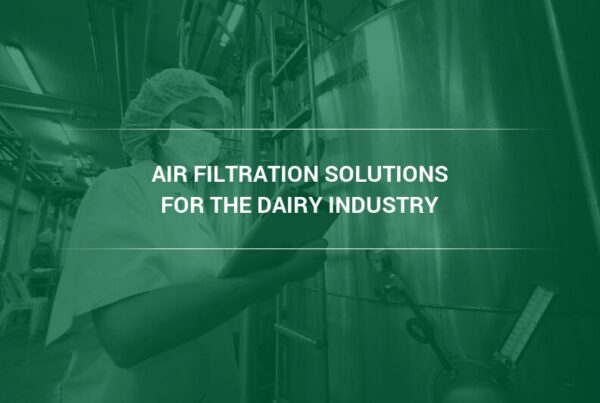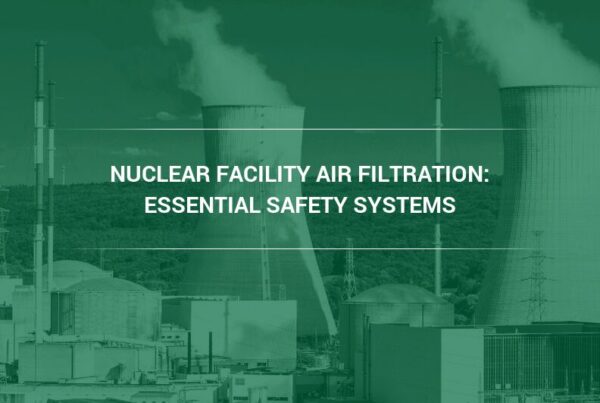Vehicle manufacturing presents unique challenges that extend far beyond assembly lines and production quotas. From automotive plants to aerospace facilities, manufacturers face a critical yet often overlooked factor: air quality. The dust, fumes, and contaminants generated during cutting, welding, painting, and grinding operations don’t just disappear. These pollutants accumulate, creating hazardous conditions that can halt production, compromise worker health, and damage expensive equipment.
Modern vehicle manufacturing demands precision at every step. A single contaminated paint job can cost thousands in materials and labor. Excessive dust can damage sensitive machinery, while poor air quality puts workers at risk and potentially violates safety regulations. These challenges make effective air filtration systems essential infrastructure rather than optional equipment.
A comprehensive guide explores the specific air quality challenges facing vehicle manufacturers and examines proven solutions that protect both people and processes. Whether you’re managing an automotive assembly plant, aerospace manufacturing facility, or specialty vehicle production line, understanding these fundamentals can transform your operational efficiency and workplace safety.
Read our previous blog: Clean Air in Material Processing: Tips and Considerations for Industrial Air Filtration
Air Quality Challenges in Vehicle Manufacturing
Vehicle manufacturing involves multiple processes that generate significant airborne pollution. Each operation presents distinct filtration challenges that require targeted solutions.
Metalworking Operations Create Complex Contamination
Metalworking processes generate three important kinds of airborne contaminants. Heavy dust levels accumulate from cutting, grinding, and machining operations. These particles settle on equipment and work surfaces, potentially damaging precision machinery and interfering with quality control processes.
Explosive dusts pose serious safety risks, particularly when working with aluminum, magnesium, and other reactive metals. These fine particles can ignite under certain conditions, making proper collection and containment crucial for worker safety and facility protection.
Molecular pollutants represent a unique, challenging contamination type. The invisible threats include toxic gases, corrosive compounds, and odor-causing chemicals that can harm workers and damage sensitive equipment even at low concentrations.
Paint Booth Filtration Demands Precision
Paint spraying facilities require constant fresh air circulation to maintain production quality, worker safety, and hygiene standards. However, achieving uniform airflow across large production lines presents significant engineering challenges.
The scale of modern paint booths creates wind-tunnel effects between stations, disrupting spray patterns and compromising finish quality. Airflow deflection and disruption can cause overspray to settle on wet surfaces, creating costly defects that require complete refinishing.
Paint booth filters must balance multiple requirements: removing overspray particles while maintaining consistent airflow, protecting workers from volatile organic compounds (VOCs), and ensuring adequate ventilation for safety compliance.
Welding Operations Generate Hazardous Fumes
Welding processes produce complex mixtures of metal oxides, gases, and particulates that pose serious health risks. These fumes contain particles small enough to penetrate deep into lung tissue, causing both immediate irritation and long-term health problems, including cancer.
Traditional ventilation systems can fail to capture welding fumes effectively at their source. Welders frequently work in awkward positions or confined spaces where conventional exhaust systems cannot provide adequate protection.
Robotic welding operations present additional challenges, as automated systems may generate higher fume concentrations while operators work nearby for extended periods without realizing their exposure levels.
Full-Service Air Filtration Solutions for Manufacturing
Effective air filtration in vehicle manufacturing requires understanding each process’s specific requirements and implementing targeted solutions that address contamination at its source.
Source Capture Systems Maximize Effectiveness
The most efficient approach to industrial air filtration captures contaminants as close to the generation point as possible. Source capture systems use strategically positioned hoods, arms, or enclosures to collect particles, fumes, and gases before they disperse into the general workspace.
For welding operations, flexible capture arms can be positioned within inches of the welding arc, removing up to 95% of generated fumes. These systems adjust easily to different workpiece sizes and welding positions, maintaining effectiveness across diverse applications.
Grinding and cutting operations benefit from integrated dust collection systems built into machinery. These systems capture particles immediately as they’re generated, preventing accumulation on work surfaces and reducing cleanup requirements.
High-Efficiency Filtration Technology
Modern vehicle manufacturing demands filtration systems that exceed basic dust collection capabilities. Multi-stage filtration systems combine different filter types to address the full spectrum of airborne contaminants.
Intake filters protect equipment and processes from external contamination while maintaining consistent airflow. These filters must handle varying outdoor conditions while providing reliable performance across different seasons and weather patterns.
Exhaust filters ensure that air leaving the facility meets environmental regulations while preventing contamination of surrounding areas. These systems often incorporate specialized media designed for specific contaminants generated by particular processes.
HEPA filtration becomes essential when working with hazardous materials or maintaining cleanroom standards for sensitive manufacturing processes. These systems remove 99.97% of particles 0.3 microns or larger, providing exceptional protection for both workers and products.
Energy-Efficient System Design
Effective air filtration systems balance contamination control with energy efficiency. Modern facilities face increasing pressure to reduce operational costs while maintaining environmental and safety standards.
Variable-speed drives allow HVAC systems to adjust airflow based on real-time production requirements. During light production periods, systems automatically reduce energy consumption while maintaining adequate protection.
Heat recovery systems capture thermal energy from exhaust air, reducing heating and cooling costs throughout the facility. These systems can recover 70-80% of thermal energy that would otherwise be lost through exhaust systems.
Smart monitoring systems track filter performance and provide predictive maintenance alerts, preventing unexpected failures while optimizing replacement schedules to minimize both costs and downtime.
Why Invest in High-Efficiency Air Filters? Measurable Benefits of Professional Air Filtration
Matching the optimum high-efficiency air filter with the HVAC system delivers quantifiable benefits that extend far beyond regulatory compliance. These improvements impact every aspect of manufacturing operations, from worker productivity to bottom-line profitability.
Enhanced Worker Health and Safety
Professionally selected and sized air filters for each HVAC system dramatically reduce a worker’s exposure to harmful airborne contaminants. This improvement translates directly into measurable benefits, including reduced absenteeism, lower workers’ compensation claims, and improved employee retention rates.
Facilities with effective air filtration report fewer respiratory complaints, reduced eye irritation incidents, and decreased headache-related absences among workers in contaminated areas. These health improvements contribute to higher productivity and better employee satisfaction.
Regulatory compliance becomes more manageable with proper filtration systems. Meeting OSHA standards for air quality protects facilities from potential fines while reducing liability risks associated with workplace exposure incidents.
Improved Product Quality and Yields
Clean air environments directly impact product quality across all manufacturing processes. Paint finishes show fewer defects when airborne particles are effectively controlled, reducing rework costs and improving customer satisfaction.
Precision manufacturing operations benefit from reduced contamination on work surfaces and machinery. Clean conditions extend tool life, improve dimensional accuracy, and reduce quality control rejection rates.
Electronics integration in modern vehicles requires increasingly clean manufacturing environments. Even microscopic contamination can cause failures in sensitive components, making effective air filtration essential for quality control.
Extended Equipment Life and Reduced Maintenance
Effective air filters protect expensive manufacturing equipment from contamination damage. Clean operating environments reduce wear on moving parts, extend maintenance intervals, and prevent costly breakdowns.
Painting equipment operates more efficiently in clean environments, with reduced nozzle clogging and more consistent spray patterns. This improvement reduces maintenance requirements while improving finish quality consistency.
Precision machinery maintains accuracy longer when protected from dust and particulate contamination. Clean conditions reduce the frequency of calibration requirements and extend equipment operational life significantly.
Camfil Success Stories Show Real-World Applications
A family-owned auto body shop specializing in classic and specialty vehicle restoration implemented a comprehensive air filtration system to protect their reputation for quality work. The facility faced challenges with paint defects caused by airborne contamination and worker complaints about respiratory irritation during refinishing operations.
After installing source-capture paint booth filters and general facility air cleaning systems, the shop reported a 75% reduction in paint defects requiring rework. Worker complaints about air quality dropped to zero, while productivity increased due to fewer interruptions for cleanup and defect correction.
The investment in air filtration equipment paid for itself within eight months through reduced material waste, improved productivity, and eliminated rework costs. Customer satisfaction scores improved significantly due to higher-quality finishes and faster project completion times.
Read the full case study: https://www.camfil.com/en-us/insights/case-studies/auto-body-shop
Professional Consultation and System Design
Implementing effective air filtration in vehicle manufacturing requires expertise in both industrial processes and air quality management. Each facility presents unique challenges that demand customized solutions rather than one-size-fits-all approaches.
Professional assessment begins with detailed analysis of existing air quality conditions, production processes, and facility layout. This evaluation identifies contamination sources, airflow patterns, and optimal locations for filtration equipment installation.
System design considers factors including production schedules, energy costs, maintenance requirements, and future expansion plans. Proper planning ensures that filtration systems integrate seamlessly with existing operations while providing room for growth and process changes.
Installation and commissioning require coordination with production schedules to minimize disruption. Professional installers can typically complete most systems during planned maintenance windows or off-shift periods.
Ongoing support includes maintenance training, performance monitoring, and system optimization services. Regular professional maintenance ensures peak performance while maximizing equipment life and minimizing operational costs.
Transform Your Auto Manufacturing Environment
Successful, efficient vehicle manufacturing depends on controlling every aspect of the production environment, including air quality. High-efficiency air filters protect workers, improve product quality, and reduce operational costs while ensuring regulatory compliance.
The investment in comprehensive air filtration pays dividends through improved productivity, reduced waste, and enhanced worker satisfaction. Modern systems offer energy-efficient operation with smart monitoring capabilities that optimize performance automatically.
Don’t let poor air quality compromise your end product. Contact Camfil today for a comprehensive assessment of your facility’s air filtration needs. Our experts will design a customized solution that addresses your specific challenges while delivering measurable improvements in safety, quality, and efficiency.
About Camfil
The Camfil Group is headquartered in Stockholm, Sweden, and has 29 manufacturing sites, six R&D centers, local sales offices in 35+ countries, and 5,700 employees and growing. We proudly serve and support customers in a wide variety of industries and communities across the world. To discover how Camfil USA can help you protect people, processes, and the environment, visit us at www.camfil.us.
Media Contact:
Lynne Laake
Camfil USA Air Filters
Phone: 888-599-6620
Email: Lynne.Laake@camfil.com



